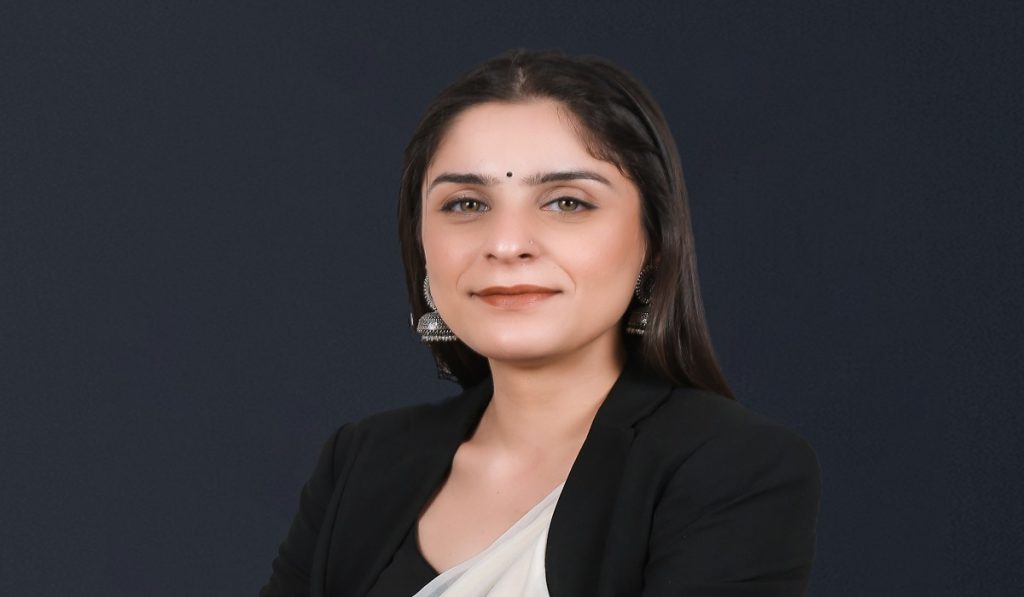This interview has been published by Anshi Mudgal and The SuperLawyer Team
Joining the field of law can stem from different motivations. What inspired you to pursue law, and how did your law school experiences shape your perspective and understanding of the profession?
Like many other kids, my first exposure to law came with the movies. Law is an ever evolving combination of words, written in a manner that each and every word matters and has weight. For me, it was particularly intriguing to comprehend how mere words could wield such influence, to construct meaning from the given elements and to find solutions mostly in the shades of grey – there are no right or wrong answers. I am an alumnus of Jindal Global Law School, O.P. Jindal Global University, Sonipat. Jindal, a name reckoned with unparalleled academic excellence, was a truly innovative practical legal experience. It has a global outlook to curriculum – a carefully designed amalgamation of arts and law, offered through a combination of mandatory courses and multidisciplinary electives. Further, it has educators and students with diverse global experiences, the former having the flexibility leading to learning through thinking, questioning and engaging in meaningful discussions. Jindal fostered my understanding of law beyond silos, by equipping me with practical training and exposure in an overall dynamic space. From self-doubt, it helped me transform into someone who is not afraid to trust her instincts in driving solutions to complex legal problems.
You started your career at a leading MNC in compliance and taxation. What were the most valuable experiences from that period, and how did they lay the foundation for your later work in providing end-to-end legal solutions on tax issues for major industry players across sectors like E-commerce, Liquor, Food and Beverage, Gaming etc?
I accepted a Pre-Placement Offer from PricewaterhouseCoopers when I was still in my fourth year of law school. Therefore, immediately after my graduation, I joined their Governance, Risk and Compliance team. My job description required me to determine whether the internal controls and policies of Multinational Corporations were legally compliant, from a global standpoint. Despite a brief stint of only six months at PricewaterhouseCoopers, I believe that I learnt an extremely valuable lesson, which led me to secure and stand out at my subsequent job at AZB & Partners. I realised that a major hurdle in the practice of the legal profession is the flood of lawyers in the system each year – there is an apparent glut. The mantra to stand out, from what I learnt very quickly, is marshalling facts and figuring out the intricacies of how businesses function – both the granular details as well as the broad perspectives.
What motivated your shift from corporate compliance to a law firm, and what differences did you notice in the work environments? How did you adapt to managing complex litigation strategies and representing clients before Commissioners of Income Tax, ITATs, High Courts, and the Supreme Court across India?
My appointment at PricewaterhouseCoopers happened more by accident than by design, at the least expected time. Even though my job profile acquainted me with diverse areas of law at an international level, yet, I craved hands-on practical involvement in the application of law in intense adversarial set ups. This was the motivation with which I started applying to law firms, knowing fully well that the work there was expected to be more intense. As far as the work environments of both the places at which I have worked thus far goes, honestly, contrary to the popular opinion, I personally do not think that the same have been very different – fortunately for me, both the places have been marked with supportive supervisors, learning, flexibility, autonomy, open communication and work-life balance (for most part). In order to discharge the responsibilities that came with my new role with sincerity, I dove deep into the facts of briefs assigned to me and simultaneously, immersed myself in absorbing what I could about the nuances of the Indian tax regime/ Tax Treaties. Of course the “real-world” with no margin of error was daunting, more so, since I took up a highly specialized area, but nonetheless, being someone who had fought stubbornly for a spot at the most reputed law firm in India, I was determined to make the most out of the opportunity advanced to me.
With over seven years specializing in Income Tax, International Tax, Transfer Pricing, Foreign Exchange, and Benami law, what has been one of the most challenging cases you’ve handled and how did you navigate it?
For me, the fact that a case is significantly weak on facts or on a point of law will not by itself make it “the most challenging”. When it comes to taking a case to Court, there is always more than what meets the eye. It’s not just about reviewing documentation, drafting and arguing – it’s actually about all the behind the curtain strategizing and client management – balancing possible outcomes with client expectation every time the case is likely to come up. For me, the most challenging cases are the ones with an ostensible mismatch in the attainment of the said balance. In fact, even an unassuming case of assured balance may become a challenging one owing to certain unforeseeable circumstances, such as, delayed hearing on account of the opposite counsel or the Judge being on a leave, or on account of the case not being listed or taken up. There is no rigid or inflexible formula for ready application, so as to navigate a challenging case. Needless to state that when such a situation arises, which it will more often than you’d like, you will be constrained to think of creative solutions, trust your instincts and quickly follow through, irrespective of how outside your comfort zone it may be. It may not be in the fitness of things to allude to a specific instance of any case.
You have authored several articles on contemporary tax issues, including Equalisation Levy, GAAR, Benami Property, etc. How has writing shaped your career, influenced your approach to complex legal issues, and contributed to policy discussions?
I firmly believe that what distinguishes an average lawyer from a great one is the latter’s ability to draft a legal document methodically and precisely, in a manner that captivates the reader of such a document. The reader should not have any doubt about the observations advanced and its co-relation with the ultimate conclusion or the proposition sought to be canvassed. This is particularly true for those pursuing litigation, since very often, Judges base their decisions having regard to the content of the petitions, appeals, applications, submissions, etc. I believe that each time I write an article, it helps me enhance this precise skill. Of course, it’s a process – you come across a relevant contemporary issue or a topic you don’t quite know much about; you understand its context; you go over the related statutory provisions, precedents and scholarly works; you formulate your independent thoughts; and finally, you pen it all down! Each time I have done this, I have been exposed to the enormous gap between what the businesses are doing and the law as it is. This invariably opens policy discussions. Article writing assumes even more significance for entry-level associates, since a large part of their job profile entails churning out drafts. It goes without saying that it should be them who should be doing the reading, the thinking and the writing and not the nuanced Artificial Intelligence!
While working with international entities and advising on transactional tax matters, how do you approach cross-border cases? What are the major challenges in handling matters like foreign exchange issues, M&A structuring, or international tax disputes, and how do you navigate them effectively?
I believe that the underlying challenges and approach to each transaction or case is specific to its own set of facts and as such, the same cannot be generalised. Be that as it may, in my experience, the biggest challenge still seems to be the rather intricate regulatory compliances, both domestically and internationally. Since laws usually play a catch-up with the pace of dynamic businesses, the extent of applicability of existing laws on such businesses. always remains debatable and prone to future litigation. Further, with specific reference to the domain of tax laws, in cases where existing laws could not bring certain business models within the taxing net, retrospective amendments have been conceptualised and effectuated, consequently, adding to investor anxiety. I believe that one way to navigate this is to keep updated about the mechanics of disruptive business models and the manner in which such models are being looked at, globally. With the requisite background, the need of the hour is to engage with the policy makers so as to strike the requisite balance.
As a woman litigator in a highly technical field, what challenges have you faced, and how do you balance mastering complex legal frameworks, devising litigation strategies, and mentoring the next generation of lawyers?
Being a nuanced field, not many law graduates opt for tax law. What I noticed during my initial days of practice was that the litigation space, specifically, the tax litigation space, is dominated by a handful of lawyers. The percentage of women lawyers amongst this handful, is negligible. The trend seems to be improving as far as entry-level and mid-career level representation of women in litigation generally is concerned, where women seem to be matching, if not outnumbering men. However, effects of improvement are yet to be noticed in the tax litigation space. In my opinion, the strides made to ensure formalistic equality in many corporates and firms are laudable. This includes a supportive environment, with a clearly articulated policy on discrimination, harassment, flexible timings, maternity leave, etc. That said, in my experience, heightened scrutiny, specifically, outside these spaces, still continues to serve as a systematic barrier. It is up to the legal community to collectively work towards addressing this challenge. In my experience, one way to do this effectively, is to assume a mentorship role, offering insights, guidance and support to law students as well as organising and participating in periodical sensitisation trainings. Certainly, this would add meaning coming from women already assuming leadership roles.
What advice would you give to law students or young lawyers considering a career in tax law and litigation, particularly in balancing technical expertise with advocacy and strategic client management?
A couple of quick points here. First, as stated above, get your hands dirty figuring out the facts and how businesses function; understand risks. Second, whether you work for free or for a fee, marshal the facts and apply the law to create a positive impression. Third, which is an extension of the second, remember that preparation is key and hence, never appear before a Court unprepared, else, you will be doing a disservice to your client, the Court and the cause of justice. Fourth, know that networking is an integral part of the legal profession. You may have the best understanding of the law, but unless and until the client community reposes confidence in you, what is the worth of all the theoretical knowledge? Therefore, from day zero, network within the community – with your friends and associates across different fora in different parts of the country/ world. Keep in mind that most of the work is generated through references alone. So, be active on social media. Your network should know exactly what you’re up to. For this, post regular updates, write articles/ papers/ columns or participate in talk shows/ conferences/ seminars/ lectures. Fifth, have patience and perseverance – remember that giving up is not an option. Stay relentless and focus on building a quantum practice. Trust the process.
Get in touch with Priya Tandon –




